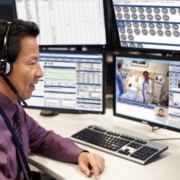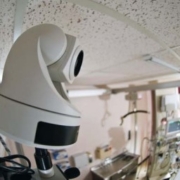If tele-ICU systems were broadly and effectively implemented in Massachusetts, it is conservatively calculated that more than 350 additional lives could be saved each year, the hospitals would benefit financially, and the potential savings for payers would exceed $122 million annually
Formal ICU telemedicine programs now support 11% of non-federal hospital critically ill adult patients. There is increasingly robust evidence of association with lower ICU and hospital mortality and shorter ICU and hospital length of stay. Early studies suggest that implementation of ICU telemedicine programs has been associated with lower numbers of malpractice claims and costs
The purpose of the tele-ICU is not to replace bedside clinicians or bedside care, but to provide improved safety and to enhance outcomes through standardization. The tele-ICU is a “second set of eyes” that provides additional clinical surveillance and support




